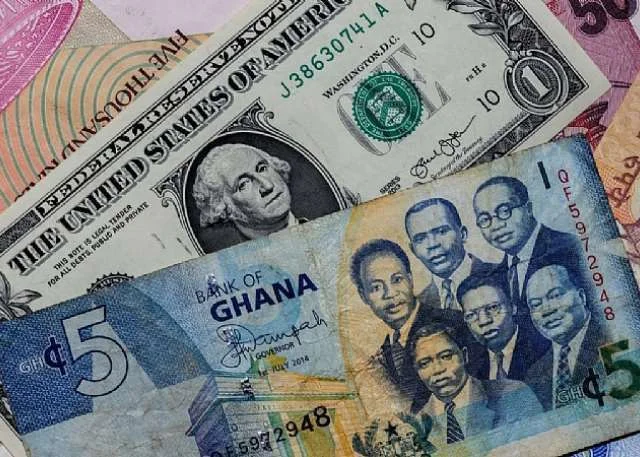In a stunning turnaround from its 2022 lows, the Ghanaian cedi has surged nearly 50% against the US dollar so far in 2025, according to Bloomberg data, making it the best-performing currency in the world this year.
Starting the year near ₵15 to the dollar, the cedi now trades just above the ₵10 resistance line, opening this Monday at ₵10.21/$, a 7% gain from Friday’s close.
From Worst to First: A Currency Comeback Story
This rapid appreciation marks a remarkable comeback for the cedi, which was the world’s worst-performing currency in 2022.
The Country lost more than 55% of its value during a severe debt crisis and inflation spiral.
Now, investor sentiment is sharply rebounding as Ghana implements wide-ranging reforms and reaps the benefits of commodity-driven growth, especially in gold and cocoa.
Tight Monetary Policy Drives Strength
The Bank of Ghana (BoG) has played a central role in the currency’s turnaround.
Under the leadership of Governor Johnson Asiama, the central bank has maintained a hawkish monetary stance despite declining inflation, which eased to 21.2% in April 2025.
“Stability doesn’t mean fixation,” Asiama noted, highlighting the BoG’s cautious strategy to maintain balance between currency strength and export competitiveness.
In March, the BoG shocked markets with a 100-basis point rate hike, bringing the policy rate to 28%, aiming to curb inflation and attract foreign capital.
The central bank also reformed its forex auction system, moving to a spot-market model that has reduced speculative activity and improved dollar availability for businesses.
Commodity Boom Powers Reserves
A major factor behind the cedi’s rally has been Ghana’s windfall from global commodity price surges:
-
Gold prices soared from $2,000/oz in 2024 to $3,400 in May 2025, boosting Ghana’s export revenue from $7.6 billion in 2023 to $11.6 billion in 2024.
-
The Gold Board policy, which requires gold sales in cedis before export, has expanded national gold reserves from 9 tons in 2023 to 31 tons today.
-
Ghana’s foreign exchange reserves hit an all-time high of $11.4 billion in March 2025.
Non-traditional exports, including oil and agriculture, also supported a record trade surplus of $4.3 billion in 2024.
IMF Bailout and Fiscal Discipline Restore Confidence
Ghana’s $3 billion IMF program, launched in 2023, has reinforced macroeconomic stability through strict fiscal measures. These include:
-
Suspending over ₵65 billion in arrears payments
-
Cutting Treasury bill yields from 28% to 15%
-
Enforcing spending discipline and debt restructuring
These actions have restored investor and market confidence, helping anchor inflation expectations and strengthen the cedi’s recovery.
Cautious Optimism Amid Inflation Risks
Despite the strong gains, economists warn against premature celebration. Inflation remains well above the BoG’s 6–10% target, and recent hikes in utility prices could delay any move toward monetary easing.
“Aggressive rate cuts now could reignite inflation or trigger speculative attacks on the cedi,” warned a senior economist at a local investment firm.
Political Stability a Silent Boost
President John Mahama’s economic reform agenda has also been credited with sustaining political calm during a difficult adjustment period.
His administration’s focus on transparency, currency discipline, and industrial support continues to reassure international partners and local investors.
Conclusion
Ghana’s economic rebound in 2025 is one of the most striking global currency stories this year.
From debt default and runaway inflation to record trade surpluses and a currency rally, the Ghanaian cedi is now a symbol of resilience, reform, and strategic policy making in West Africa.





















